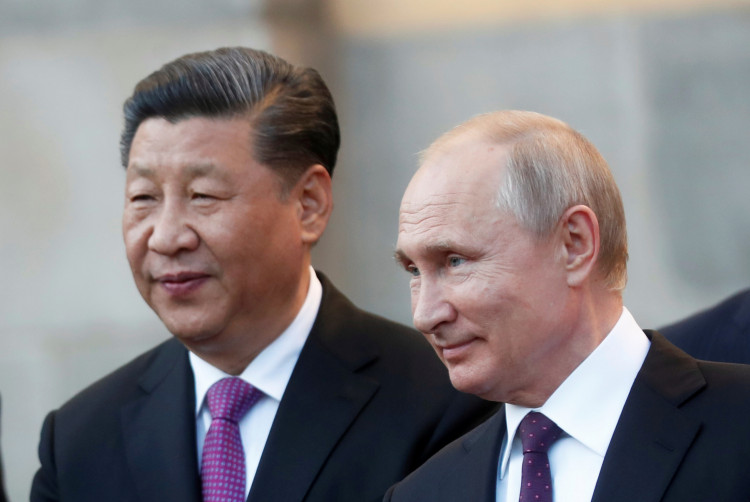Chinese President Xi Jinping will stand alongside Russian President Vladimir Putin, North Korea's Kim Jong Un, Iranian President Masoud Pezeshkian, and Myanmar junta chief Min Aung Hlaing at a massive military parade in Beijing next week, underscoring what analysts describe as an "Axis of Upheaval" challenging the Western-led order.
The September 3 event, marking the 80th anniversary of Japan's surrender in World War II, will bring together some of the world's most heavily sanctioned leaders. Almost no Western heads of government will attend. Exceptions include Slovakia's Prime Minister Robert Fico, who has opposed European Union sanctions on Moscow, and Serbian President Aleksander Vucic, who has balanced ties with Russia and China while maintaining a stated commitment to the EU.
"Xi Jinping is trying to showcase that he is very strong, that he is still powerful and well received in China," Alfred Wu, an associate professor at Singapore's Lee Kuan Yew School of Public Policy, told reporters. "When Xi was just a regional leader, he looked up to Putin, and saw the kind of leader he could learn from - and now he is a global leader. Having Kim alongside him, as well, highlights how Xi is now also a global leader."
The Chinese Foreign Ministry confirmed that the parade will include tens of thousands of troops marching through the capital, one of Beijing's largest shows of military power in years. Assistant Foreign Minister Hong Lei said leaders from Belarus, Indonesia, and South Korea's National Assembly would also attend, as well as United Nations Under-Secretary-General Li Junhua.
Putin's presence marks his first visit to Beijing since 2024, as he faces international isolation and an International Criminal Court warrant over the deportation of Ukrainian children. Russia, under heavy Western sanctions since its 2022 invasion of Ukraine, has leaned on China as a vital strategic partner. North Korea, under U.N. sanctions since 2006 for its nuclear weapons program, remains a formal treaty ally of China, though Kim last visited in 2019.
China also buys nearly 90% of Iran's sanctioned oil exports and sources rare earth metals from Myanmar. This economic support has allowed the group of states to defy U.S. and European restrictions while aligning on security and trade initiatives. Analysts say the coalition has sought to undermine U.S. interests from Taiwan to global shipping lanes.
Xi's staging of the parade comes as President Donald Trump continues to press for a settlement to the Ukraine war and weighs another meeting with Kim Jong Un. "I'm talking about protecting the free world," Trump said in January when asked about China and Russia's naval presence in Asia. "You look at - you don't even need binoculars - you look outside. You have China ships all over the place. You have Russian ships all over the place. We're not letting that happen. We're not letting it happen."
Kim's appearance in Beijing is his first at a Chinese parade since 1959 and signals Beijing's enduring leverage over Pyongyang. His attendance also provides Xi additional diplomatic weight ahead of a potential summit with Trump later this year, where trade negotiations and the fate of TikTok's U.S. operations are expected to be high on the agenda.
The White House has left open the possibility that Trump could meet Xi in Asia in late October. For Beijing, hosting Putin and Kim first provides a strategic advantage.






